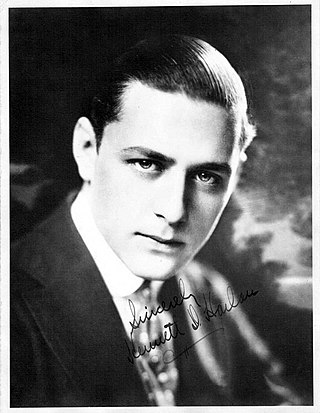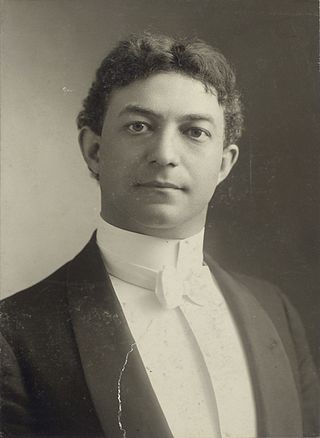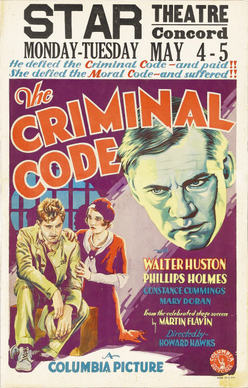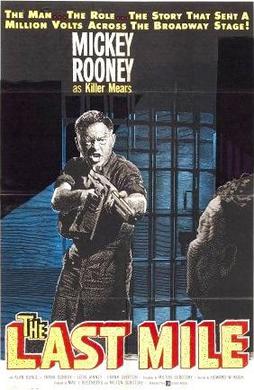
William Clark Gable was an American film actor. Often referred to as the "King of Hollywood", he had roles in more than 60 films in a variety of genres during a career that lasted 37 years, three decades of which was as a leading man. He was named the seventh greatest male movie star of classic American cinema by the American Film Institute.

Spencer Bonaventure Tracy was an American actor. He was known for his natural performing style and versatility. One of the major stars of Hollywood's Golden Age, Tracy was the first actor to win two consecutive Academy Awards for Best Actor, from nine nominations. During his career, he appeared in 75 films and developed a reputation among his peers as one of the screen's greatest actors. In 1999, the American Film Institute ranked Tracy as the 9th greatest male star of Classic Hollywood Cinema.

Stanislaus Pascal Franchot Tone was an American actor, producer, and director of stage, film and television. He was a leading man in the 1930s and early 1940s, and at the height of his career was known for his gentlemanly sophisticate roles, with supporting roles by the 1950s. His acting crossed many genres including pre-Code romantic leads to noir layered roles and World War I films. He appeared as a guest star in episodes of several golden age television series, including The Twilight Zone and The Alfred Hitchcock Hour while continuing to act and produce in the theater and movies throughout the 1960s.

William Lee Tracy was an American stage, film, and television actor. He is known foremost for his portrayals between the late 1920s and 1940s of fast-talking, wisecracking news reporters, press agents, lawyers, and salesmen. From 1949 to 1954, he was also featured in the weekly radio and television versions of the series Martin Kane: Private Eye, as well as starring as the newspaper columnist Lee Cochran in the 1958–1959 British-American crime drama New York Confidential. Later, in 1964, he was nominated for an Academy Award for Best Supporting Actor and a Golden Globe for his supporting role in the film The Best Man.

Preston Stratton Foster, was an American actor of stage, film, radio, and television, whose career spanned nearly four decades. He also had a career as a vocalist.

Francis Healey Albertson was an American actor who had supporting roles in films such as It's a Wonderful Life (1946) and Psycho (1960).

Kenneth Daniel Harlan was a popular American actor during the silent film era, playing mostly romantic leads or adventurer roles. His career extended into the sound film era, but during that span he rarely commanded leading-man roles, and became mostly a supporting or character actor.

George Meeker was an American character film and Broadway actor.

Tracy S. Letts is an American actor, playwright, and screenwriter. He started his career at the Steppenwolf Theatre before making his Broadway debut as a playwright for August: Osage County (2007), for which he received the Pulitzer Prize for Drama and the Tony Award for Best Play. As an actor, he won the Tony Award for Best Actor in a Play for the Broadway revival of Who's Afraid of Virginia Woolf? (2013).

John Farrell MacDonald was an American character actor and director. He played supporting roles and occasional leads. He appeared in over 325 films over a four-decade career from 1911 to 1951, and directed forty-four silent films from 1912 to 1917.

Convicted is a 1950 American crime film noir directed by Henry Levin and starring Glenn Ford and Broderick Crawford. It was the third Columbia Pictures film adaptation of the 1929 stage play The Criminal Code by Martin Flavin, following Howard Hawks's The Criminal Code (1931) and John Brahm's Penitentiary (1938).

Wheeler Oakman was an American film actor.

Ladies They Talk About is a 1933 pre-Code American crime drama directed by Howard Bretherton and William Keighley, and starring Barbara Stanwyck, Preston Foster, and Lyle Talbot. The film is about an attractive woman who is a member of a bank-robbery gang. It is based on the play Gangstress, or Women in Prison by Dorothy Mackaye and Carlton Miles. In 1928, Dorothy Mackaye, #440960, served less than ten months of a one- to three-year sentence in San Quentin State Prison.

John Miljan was an American actor. He appeared in more than 200 films between 1924 and 1958.

Edmund Breese was an American stage and film actor of the silent era.

The Criminal Code is a 1931 American pre-Code romantic crime drama film directed by Howard Hawks and starring Walter Huston and Phillips Holmes. The screenplay, based on a 1929 play of the same name by Martin Flavin, was written by Fred Niblo Jr. and Seton I. Miller, who were nominated for Best Adaptation at the 4th Academy Awards but the award went to Howard Estabrook for Cimarron.

Willard Robertson was an American actor and writer. He appeared in more than 140 films from 1924 to 1948. He was born in Runnels, Texas and died in Hollywood, California.

The Last Mile is a Broadway play by John Wexley that ran for 289 performances from February 13, 1930, to October 1930 at the Sam H. Harris Theatre. It was produced by Herman Shumlin and staged by Chester Erskine. It is set in the death row wing of a prison. The lead role of John "Killer" Mears was first played by Spencer Tracy, and it was the role that brought him to the attention of Hollywood. It was later played for a time by Clark Gable on tour. The play was adapted into a 1932 film starring Preston Foster and into a 1959 film starring Mickey Rooney.

The Last Mile is a 1959 American drama film noir directed by Howard W. Koch starring Mickey Rooney. The film is a remake of a 1932 film of the same name starring Preston Foster.

RichardRobert Elliott was an American character actor who appeared in 102 Hollywood films and television shows from 1916 to 1951.






















